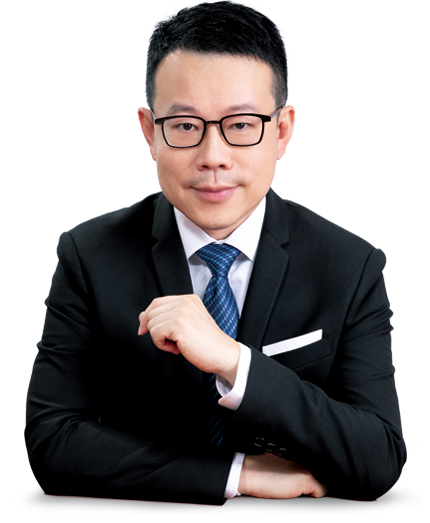New CEO's Message


Mr James Chan Yum-min
The Hong Kong Housing Society was set up in response to the challenges of the times 72 years ago. That was a time to rebuild our city and make homes for the Hong Kong community. The scene, which speaks clearly of our mission, vividly hit my mind when I take up the role of Chief Executive Officer and Executive Director. It also strikes a chord when we are holding fast to our post at this special time in Hong Kong.
Over our 70 years of history, we have weathered many challenges. While we may not have seen so many crises before as in the past year nor the profound impact they brought, they will not, and must not be the exception to deter us from moving forward. In the business of housing development, we set our sights on the future, looking beyond the adversity and uncertainty, to provide quality housing services for the community. That vision of future, coupled with our current undertakings, helps strengthen our endurance and keep us going.
As early as January this year, we activated the Business Continuity Plan to keep our operation afloat amid the spread of COVID-19. Flexible working arrangements were put in place and hygiene regimens were stepped up across the board to protect staff safety and avoid the community spread of the virus. Additional resources were deployed for the cleaning and disinfection work at our rental estates, senior housing developments and all other properties.
In this regard, I would like to express my gratitude to all those working on the frontlines, especially our property management colleagues and sanitation workers who have been working round the clock and staying vigilant during the pandemic. I am equally proud of our professional team who have been discharging their duties diligently and serving with a big heart in critical times. My gratefulness also goes to our senior management members who joined the Chairman and me in making donations as an initiative to support people impacted by the pandemic, practising philanthropy based on which the Housing Society was born.
Embracing the Challenges Ahead
Over the years, we have built our brand of quality homes and pioneering projects, including landmark examples of rental estates, subsidised sale flats, elderly housing as well as transitional housing scheme. In reinforcing our brand, we have been building homes that align with the best standards and providing innovative housing solutions to address the evolving needs of the population. And we will explore new business for long term development and tap latest technology to improve customer experiences and our internal processes.
As we take our mission forward, a major challenge that we as part of the Hong Kong community are facing is looking for land resources. We are grateful that the Government is seeing us as a close partner and has been allocating lands to us for public housing development. In tandem with continuous search for new land, we have also set our strategic directions to optimising land use and building socially sustainable homes which I would like to outline below.
Facilitating New Developments in Rural and Urban Areas with DRE
The development of Dedicated Rehousing Estate (DRE) will be a key strategic focus of the Housing Society for years to come. The Government has adopted a multi-pronged approach to increase land supply in order to solve the housing need in the medium to long term. The planning and implementation of New Development Areas (NDAs) in the New Territories is amongst those solutions. During the implementation process, however, the residents currently living in these areas will have to be properly rehoused. The Government thus entrusted us with the development of DRE to offer non-means-tested rehousing units for those eligible residents affected by the Government’s development clearance exercises. In this regard, we have been working on DRE projects in Fanling, Hung Shui Kiu and Kwu Tung North.
The DRE projects mentioned above are located in the New Territories, where clearance of scattered domestic/non-domestic structures in low-density and under-utilised areas would make way for new development with comprehensive planning and better infrastructure. This model is being extended to urban districts with the objective of rationalising and optimising land use as well as rejuvenating the decaying areas. We have started the first urban DRE located in close proximity to the new MTR Kai Tak Station. More would be expected to add to this category should suitable opportunities arise.
Uplifting Plot Ratio with Rental Estate Redevelopment
Same as other domestic buildings in the territory, our rental estates are ageing. These older estates require extensive rehabilitation or modernisation to meet the daily and evolving need of our tenants. In view of the massive resources for the upkeep of these rental estates, redevelopment will be deemed a more sustainable option in the long run. Estates completed in the 1960s and 1970s were normally built with a lower plot ratio and equipped with basic ancillary facilities. A holistic redevelopment approach would be able to rationalise the land planning as well as increase the development density, thereby improving the supplies of public housing in terms of quantity, quality and variety. Taking the case of the redevelopment of Ming Wah Dai Ha, the 3,900 units provided upon completion of the entire project will increase its capacity by over 25 per cent.
Releasing the Potential of Existing Housing Resources
To expedite the provision of housing supply in the short and medium term, we have been harnessing the use of optimisation strategy to make the most of existing land or housing resources. The concept has been applied in our implementation of “T-Home” transitional housing scheme in Yue Kwong Chuen and Kwun Tong Garden Estate II, which are undergoing redevelopment planning. Vacant units in these estates are refurbished and converted into temporary homes for people in need.
In another initiative, we will be erecting an elderly block in the compound of Jat Min Chuen by utilising the unused plot ratio of the estate. About 60 units scheduled to be provided upon completion of the block will be reserved for elderly tenants living in our under- occupied rental flats. Upon surrendering the units which would be released for others in need, the seniors are entitled to occupy the new age-friendly units for life without rent.
The same strategy applies to our schemes which provide subsidised housing owners with a channel to release under-utilised housing resources. Under the enhanced “Letting Scheme for Subsidised Sale Developments with Premium Unpaid”, owners who have owned their subsidised sale units for at least ten years are allowed to let the entire flat or individual bedroom(s) to eligible public rental housing applicants without having to pay the premium.
As regards the “Flat for Flat Pilot Scheme for Elderly Owners”, it gives elderly owners who owned a subsidised sale unit for at least ten years the option to sell their original unit and buy a smaller one in the Secondary Market with premium unpaid. The Scheme provides elderly owners with an additional choice to purchase smaller subsidised sale units which better suit their needs and circumstances, while vacating the larger subsidised sale units currently owned by them for eligible families in need of more living space.
Building Socially Sustainable Homes
Apart from optimal use of land resources, building sustainable homes will be another strategic focus for the Housing Society. In creating comfortable and sustainable homes, social sustainability is as important as environmental or economic sustainability.
For social sustainability, an important factor of consideration is whether the design fits the needs of those living in it, in particular those with special needs. In this connection, a portion of the units in our forthcoming rental estate projects will be designated as elderly, universal or flexi units. As in the case of the redevelopment of Ming Wah Dai Ha, around 30 per cent of the units will incorporate age- friendly, accessible or adaptable features to provide flexibility and comfort for people of varying abilities and at different life stages. We will make continuous efforts to enhance the age-friendly design and provisions for our coming housing projects to facilitate “ageing in place”. A study on age friendly design has been commissioned.
When it comes to the design and functionality of Subsidised Sale Flats (SSF), we make sure that the unit types on offer are socially sustainable in the long term. We reckoned that too small the space may not be sustainable in the long run, given that family size may grow with additional members over time. In addition, the comfort and wellbeing of our customers remained paramount. Taking reference to the average household size in Hong Kong, which stood at 2.7, most of the units in our forthcoming SSF projects will be two-bedroom units, supplemented with a small number of one-bedroom units and three-bedroom units.
Hanging Together
This year we see significant challenges, and enormous changes. The disruption should however not be a distraction to us from the causes to build, to make quality homes and to promote a harmonious community, all of which remain what we believe. We have a good professional team with outstanding capacities and resilience. And being a “housing laboratory”, we will use our imagination to overcome challenges and come up with innovative solutions and use new technologies to drive our work further and support our customers. We will keep faith with our causes and uphold our values to ride out the storm.
I would like to express my deep gratitude and appreciation to the guidance from the Supervisory Board and the Executive Committee, the support from our Members and the dedication and hard work of my colleagues. And I hope by means of this annual report, all our stakeholders and readers could gain better understanding of our mission and work in building quality, liveable and sustainable homes for the community and share our hope in the future and better days.

James Chan Yum-min
Chief Executive Officer and Executive Director
15 June 2020